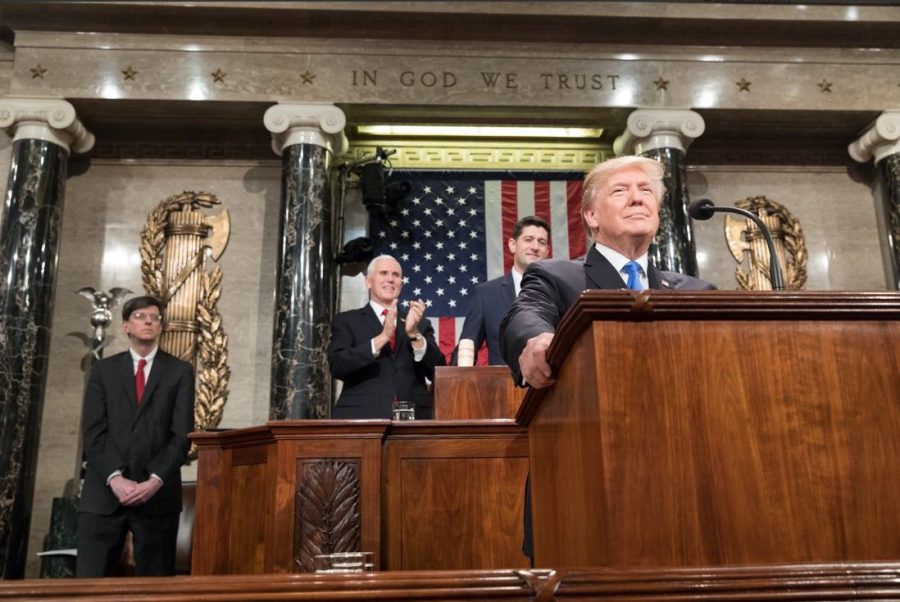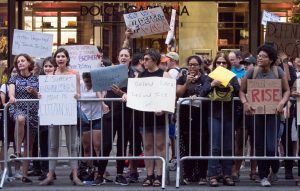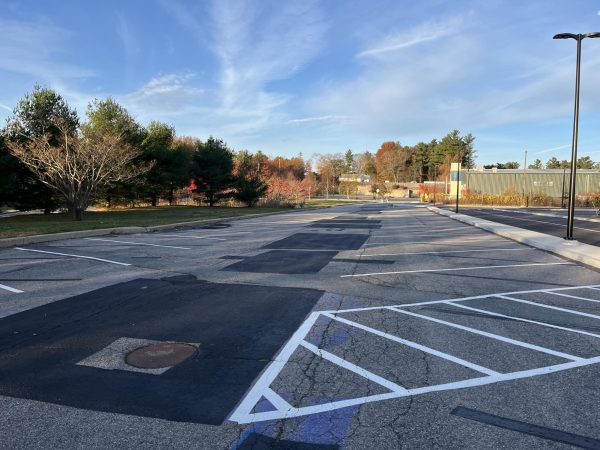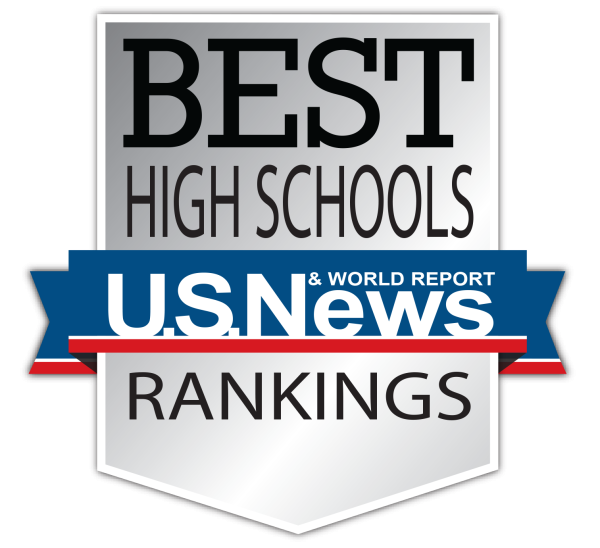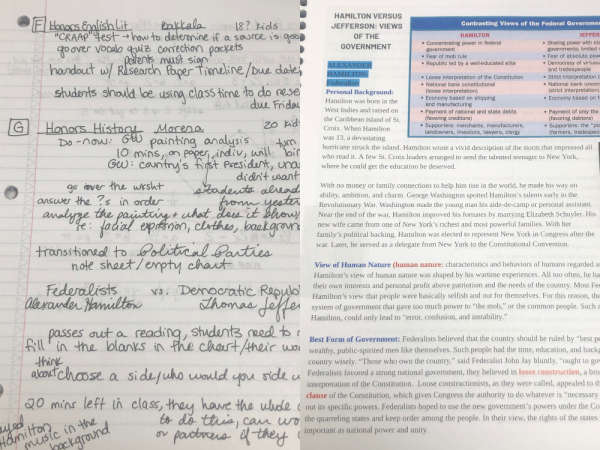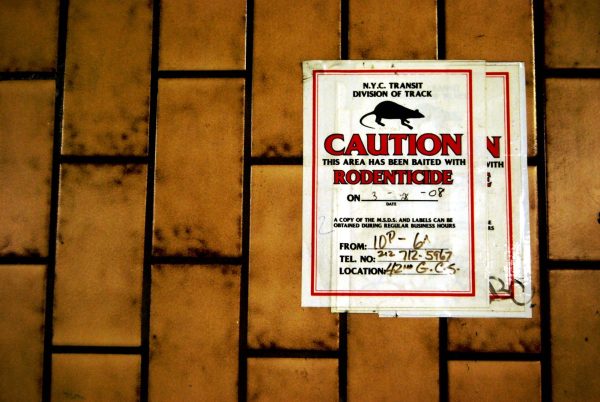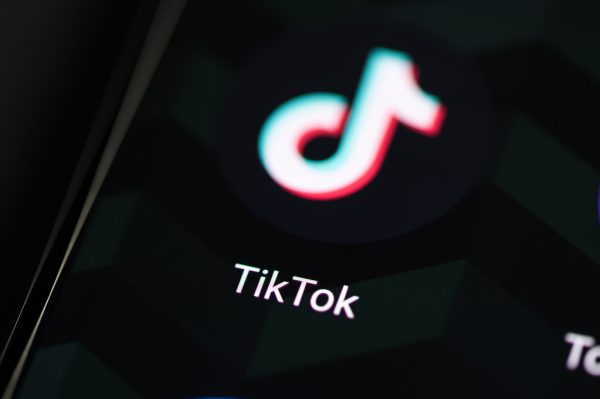Trump’s address focuses on jobs and immigration
Google image/Creative Commons license
President Trump gave his first State of the Union speech Tuesday.
The U.S. Constitution explicitly states that the president “shall from time to time give to the Congress information of the State of the Union, and recommend to their consideration such measures as he shall judge necessary and expedient.”
President Donald J. Trump gave the first such speech of his term on Tuesday. In it, he touched on a host of issues, such as jobs, infrastructure, immigration policy, and the nation’s struggles with opioid addiction.
The president summed up his assessment by simply saying, “The state of our union is strong.”
Mr. Trump attributed much of this to the strength of the citizenry, and invited as guests many people who overcame or helped others to overcome various tragedies over the past year.
Ashlee Leppert, a technician for the U.S. Coast Guard, was among the first to touch down in Houston to provide support for victims of Hurricane Harvey. A California firefighter, David Dahlberg, saved more than 60 children from a summer camp threatened by wildfires.
Mr. Trump thanked all of the people who aided others during these events and used them as a call for unity.
“Tonight, I call upon all of us to set aside our differences, to seek out common ground, and to summon the unity we need to deliver for the people we were elected to serve,” he said.
Mr. Trump put emphasis on how Americans stand together, how they’re all part of “one American family,” and reminded the Congress and the American people that “we all share the same home, the same heart, the same destiny, and the same great flag.”
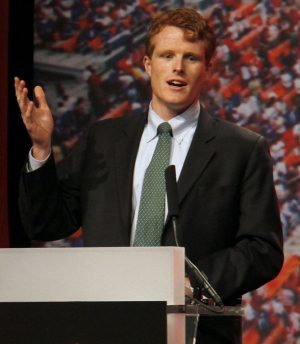
Rep. Patrick Kennedy III (D-Mass.) gave the Democratic response to Mr. Trump’s speech, telling “Dreamers” in Spanish that “we will fight for you.”
Mr. Trump stressed the creation of more than 2.4 million new jobs over the past year, unemployment at a 45-year low (although it actually jumped up the week of Jan. 20), and the success of small businesses in the wake of tax cuts.
He also stated that a surging automobile industry is bringing jobs back to the United States.
“They [automobile industries] want to be where the action is; they want to be in the United States of America,” Mr. Trump said.
While it is true that Fiat-Chrysler is bringing some jobs back to Michigan from Mexico and that unemployment is at record lows, the auto industry has surged and unemployment has gone down consistently over the past eight years.
Mr. Trump then turned his attention to a bipartisan concern: the nation’s crumbling infrastructure.
“I call upon the Congress to have safe, fast, reliable, modern infrastructure that our people deserve,” he said. “America is a nation of builders.”
A majority of Mr. Trump’s speech focused on the issue of immigration, which has members of Congress and Americans on the whole at odds. The president painted a dark picture, associating illegal immigration with crime, gangs, and terrorism.
Mr. Trump’s point ultimately was a call to draft legislation ending the visa lottery and what he termed “chain migration” (also called family migration) and, of course, the completion of a border wall.
“For decades, open borders have allowed drugs and gangs to pour into our most vulnerable communities,” Mr. Trump said.
Alluding to the controversy surrounding so-called “Dreamers” — children brought to the country illegally by their parents — the president stressed that “Americans are dreamers too.”
Mr. Trump connected immigration in part to the nation’s drug epidemic, saying that “in 2016, we lost 64,000 Americans to drug overdoses: 174 deaths per day. Seven per hour.”
In the end, the speech was well received by Republicans, who interrupted 115 times with applause. Democrats on the other side of the chamber largely remained silent. As he finished, Mr. Trump turned his attention beyond the chamber to Americans watching at home.
“Our nation will forever be safe and strong and proud and mighty and free,” Mr. Trump said. “Thank you, and God bless America.”

Amelia is a senior. She has a great interest in writing and is excited to be a journalist and co-editor for the The AMSA Voice. Amelia has attended AMSA...

